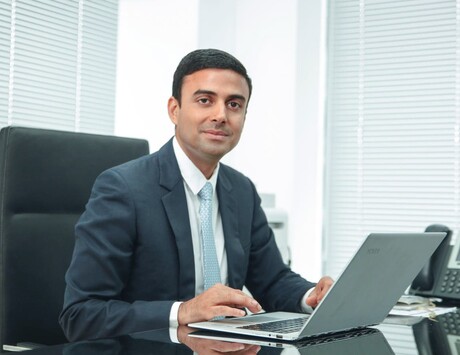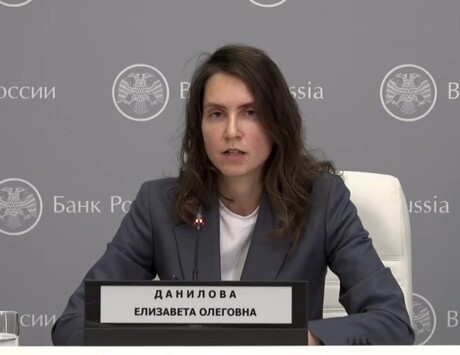Russian billionaire Alexander Lebedev has a lot of things on his mind this week – and not just the London Evening Standard securing the Ofcom licence for the capital's local TV service.
"What? Oh yes, I got an SMS, yes I am aware," Lebedev said when MediaGuardian congratulated him on the day of the announcement. He might be bankrolling the Evening Standard's new venture and the loss-making Independent but with a pending court case in relation to a punch-up on Russian TV and an anti-corruption campaign on the go in his native country, London seems far from a priority.
The Russian newspaper and airline owner was due to stand trial on Thursday for alleged hooliganism on charges that carry a maximum prison sentence of five years, after being prosecuted for punching Sergei Polonsky on a television show but the hearing was put back by several weeks. "We are counting on an acquittal," he told reporters outside the court in Moscow.
Back in London, journalists on Lebedev's papers are just as concerned for their own future. On the cash-strapped Independent, they worry the money will dry up if Lebedev is jailed, while Evening Standard staff wonder how the local TV station is going to be rustled up out of an operation that has already been shorn of all journalistic fat.
Lebedev, who said he has already sunk £80m into the Standard and Independent titles, added that he is committed to investing up to £35m in the overall newspaper and TV operation over the next three years. He denied he has problems with liquidity and said he has recently "decoupled" his media business in the UK from his Russian interests.
"The overall budget for the [London] group this year, next year and 2015 is £30 to £35m," he said, adding that under the plan he hopes his London business run by his son Evgeny – the Evening Standard, Independent, Independent on Sunday, i and launching next year, London Live – will return a net profit of "between £12m and £18m in two and a half years".
He revealed that he has had talks with sovereign wealth funds who want to invest in the group to share the burden of losses, but indicated they were from developing countries with whom he would rather not do business.
"We won't let anybody who is trying to improve their reputation in. We listen to sovereign buyers, but it all came to nothing. I have no interest in improving someone's reputation," Lebedev said.
He is open to having a partner holding a position "up to a blocking stock" but "we won't admit [just] anybody". Levedev added that "you don't have a lot of [potential] investors, there isn't a very big queue" – not surprisingly, given the well publicised structural problems facing the newspaper industry.
The Evening Standard says it has budgeted for more than £15m on content creation and acquisition for London Live, although it does not say over what time period, to help hit its target viewership.
London Live will also be able to bid for a share of the £5m of licence fee money that the BBC is committed to spending annually on content from the new generation of local TV channels for three years from 2014.
"It is exciting and will give us a much-needed cash boost but nobody really knows where the added responsibilities are going to work out," said one staffer on the Evening Standard.
Lebedev's first foray into British newspapers came in 2009 when he bought a majority stake in the Evening Standard from Daily Mail & General Trust. The following year Lebedev took the Independent and Independent on Sunday from the Irish group, Independent News & Media.
The Standard was losing almost £30m a year when the Russian tycoon bought it, but after pursuing a freesheet strategy in October 2012 it announced it had turned the corner with a £1m profit.
"We are producing a small financial result. The financial model of three years ago is working like a clock. It's on target," said Lebedev. With the additional investment he added that he hopes the Standard will continue to move towards sustainable profitability.
The outlook at the Independent is far less clear, but Lebedev says he has "shrunk quite considerably" the paper's losses, from £18m in 2011 to £13m this year.
He insisted he is not contemplating closing the Indy. "It's a good brand. It's a quality paper," he said, adding that he thinks its future can only be secure if the online operation is beefed up.
"They have achieved a couple of miracles on the Standard. I don't see why they should not come up with something on the Independent." He said it needed "to do better in digital".
Most striking during a half-hour phone conversation with Lebedev is his enthusiasm for the i, the 20p spin-off from the Independent which has bucked the trend of declining UK newspaper circulation, with average daily sales closing in on 300,000, according to figures for January published on Friday.
i's success has clearly fuelled his faith in print, with Lebedev saying the business model has confounded all expectations. "Why buy it, when you can have Metro for free? It might be the hybrid model [between free and paid for] in the end that we have found works," he added.
Those long enough in the tooth will remember that the Standard's former owner, Associated Newspapers, made a financially disastrous foray into TV back in the mid-1990s with the launch and closure of Channel One, a cable station it then futuristically billed as its "electronic newspaper" for the capital.
A similar fate befell Trinity Mirror which also dived into broadcasting in the 1990s with Live TV. It failed the road-test even after a restorative kick up the backside from former Sun editor Kelvin MacKenzie, who famously introduced News Bunny to the nation.
The difference this time however is that London Live gets a slice of the broadcasting spectrum – it will launch on Freeview – as opposed to having to pay for a slot on London's cable networks, which were struggling to compete with Rupert Murdoch's satellite TV. That said, London Live is planning to secure distribution on BSkyB's satellite and Virgin Media's cable services.



